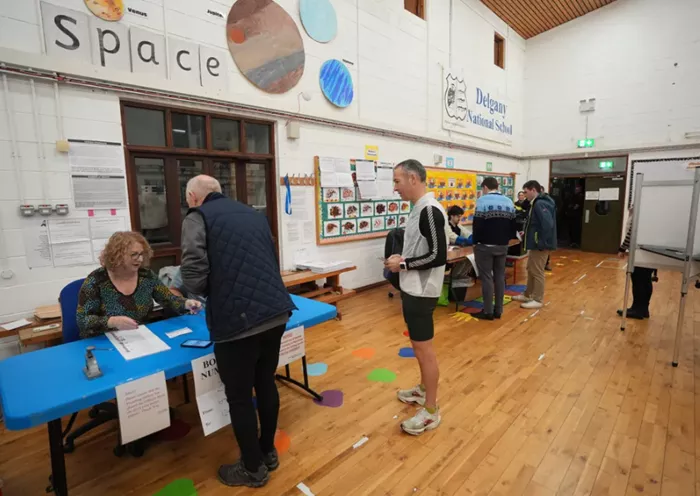Ireland heads to the polls this Friday for its legislative elections, with immigration emerging as a key issue. This marks a significant shift for a country historically defined by mass emigration. However, in a surprising development, the far-right remains largely absent from the political landscape.
“There’s no major party in Ireland pushing anti-immigrant agendas like in France,” said Bryan Fanning, a migration politics expert at University College Dublin. “Instead, small, disorganized far-right groups and independent candidates remain marginal.”
Far-Right Candidates on the Ballot
According to The Irish Times, around 60 far-right candidates are running in the election, making up about 10% of the total 685 candidates. Although this is a record, the two main center-right parties, Fianna Fáil and Fine Gael, still dominate the political scene. They are closely followed by Sinn Féin, the largest left-wing opposition party.
Ireland’s foreign-born population has grown significantly in recent years, particularly due to the arrival of 107,000 Ukrainians fleeing the war with Russia. At the same time, the country has struggled with a long-running housing crisis that dates back to 2008. The Economic and Social Research Institute estimates that 260,000 new homes must be built by 2030 to meet demand.
Soaring Rents Amid Housing Shortages
Rental prices have skyrocketed, with the average monthly rent in Ireland now about $2,130, and $2,695 in Dublin. This is a stark contrast to the average net monthly salary of $3,150. As housing concerns intensify, immigration has become a divisive issue. A recent Ipsos poll found housing shortages to be the most pressing concern for voters, followed closely by immigration.
Asylum centers have become focal points of public discontent, with some accusing them of contributing to the housing crisis. This anger boiled over in November 2023, when anti-immigration riots erupted in Dublin. Since then, 18 buildings designated to house asylum seekers have been set on fire across the country.
Tensions in Dublin’s Coolock Neighborhood
The most recent attack targeted a site in Coolock, a northern Dublin neighborhood. The site, a former factory, is set to house 550 of the 16,000 asylum seekers who have arrived in Ireland. Graffiti on the site reads, “Get them out, free Coolock.” Local anti-immigration candidates, including Brian Garrigan, have gained traction with slogans like “Irish Lives Matter.”
Mick, the manager of a local pub in Coolock, expressed frustration with the situation. “The locals aren’t racist, but we’re struggling with housing and making ends meet. Why place an asylum center here?” He added that he didn’t plan to vote, feeling that politicians have long failed to address these issues.
A Divisive Election Campaign
Fiona Hurley, head of the migrant support organization Nasc Ireland, rejected the notion that Ireland is no longer a welcoming nation. However, she acknowledged that migrants are more vulnerable in the housing crisis, with 2,800 asylum seekers currently homeless.
Bryan Fanning pointed out that far-right parties have not gained significant ground in Ireland, noting that their share of the vote remained under 3% in the most recent local and European elections. Yet, this election marks their strongest showing to date.
A Tight Race for Power
Prime Minister Simon Harris, who assumed office in April, has breathed new life into the center-right Fine Gael party. The party is part of a coalition with Fianna Fáil and the Green Party, which has governed since 2020.
Sinn Féin, led by Mary Lou McDonald, remains a powerful political force, with plans for a referendum on Irish unification by 2030. However, with two-thirds of the seats counted so far, Fianna Fáil is leading a tight three-way race. Early results show Fianna Fáil with 21.9% of the vote, Fine Gael at 20.8%, and Sinn Féin at 19.0%. Although Fianna Fáil is projected to win the most seats, the outcome remains uncertain.
As Ireland navigates its housing crisis and growing concerns over immigration, this election will be a critical moment for the country’s future political direction.
Related topics:
- Why Ideological Vetting of Immigrants is a Dangerous Idea
- Layoff Puts H1B Visa Holder at a Crucial Crossroads
- Keir Starmer: Tories’ ‘Open Borders Experiment’ Exposed by Record Migration Figures


